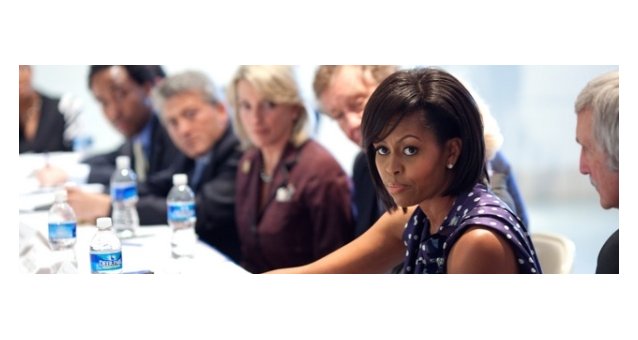Accelerating the snail’s pace towards gender balance on corporate boards requires EU Directive, says EWL

[Brussels, 29 February 2012] Progress towards the equal representation of women and men in the boardrooms of European companies remains slow, although the initiatives adopted in some EU member states in recent years have succeeded in opening boardroom doors – narrowly – for women, reveals the European Women’s Lobby’s new report on progress, gaps and good practice as regard to women on boards in Europe.
A few days before the European Commission Vice-President Viviane Reding will reveal whether European companies have made sufficient progress towards gender balance or whether EU-level measures are needed, the EWL calls for an EU Directive to ensure parity on company boards across the EU.
‘A year ago, Vice-President Reding put gender balance on boards on the agenda and encouraged self-regulation. To date her ‘Women on the Board Pledge for Europe’ has been signed only by 24 companies. Looking at the figures in the EWL Report, we see that this experiment must be complemented by binding measures at the EU level, said EWL Secretary General Cécile Gréboval.
‘Most progress towards parity on boards has been made in France, where quota legislation was introduced last year. Radical change throughout Europe requires similar decisive action also at EU level. The European Commission must seize this unique opportunity to ensure efficient and diverse economic decision-making and propose an EU Directive on parity in boardrooms,’ Ms Gréboval added.
The EWL Report, entitled ‘Women on Boards in Europe – From a Snail’s Pace to a Giant Leap?’ was launched on 29 February 2012 in a panel debate which brought together stakeholders across the boards – European Parliament, EU member states, the business world and women’s rights associations – to discuss the state of play and to outline their expectations for the European Commission’s next steps.
— ends—
Quotes from panelists
Marije Cornelissen – MEP (Geens: ‘Last summer, the European Parliament called on Vice-President Reding to propose EU legislation, including quotas in 2012 if the steps taken by companies and Member States are found to be inadequate. The time has come to take stock on progress. I expect her to stand behind her word and to take the European Parliament’s position into account. Self-regulation has had its chance. If it proves to be insufficient, binding measures are needed. We cannot wait for another 50 years until women are equally represented in business leadership.’
Sabine de Bethune – President of the Belgian Senate: ‘If women’s representation at boardroom level of publicly listed companies would solely depend on competencies and qualifications, we wouldn’t be holding this event. Women should not be embarrassed, nor do men have to feel offended by quota legislation. Quotas are a legitimate means to realize a balanced representation of women and men in society.’
Claire Godding – Diversity Manager of BNP Paribas Fortis: ‘Quotas can change the composition of boardrooms fast. However, the business world has to change from within, to ensure that, in addition to achieving a better gender mix at all levels, the next generation of directors will have a good work-life balance and a better mix of male and female competencies. Women can contribute to this change. The women leaders of tomorrow do not have to live the lives of the business managers of today. They can co-create new rules, which will benefit both men and women.’
Cécile Gréboval - Secretary General of the European Women’s Lobby: ‘A year ago, Vice-President Reding put gender balance on boards on the agenda and encouraged self-regulation. To date her ‘Women on the Board Pledge for Europe’ was signed only by 24 companies. Looking at the figures in the EWL Report, we see that this experiment must be complemented by decisive action. Most progress towards parity has been made in France, where quota legislation was introduced last year. Radical change throughout Europe requires binding measures also at EU level. The European Commission must seize this unique opportunity to ensure efficient and diverse economic decision-making and propose an EU Directive on parity in boardrooms.’
Petter Sørlien - Councellor for Equality and Non-Discrimination at the Mission of Norway to the EU: ‘The Norwegian Gender Quota is not part of the equality law but of company law – and thus one of the best examples of gender mainstreaming. If you want immediate and radical change getting more women into company board rooms – applying quota legislation will pave the way for a better gender balance in economic decision-making.’
Full EWL Report here
For more information, please contact Anna Elomaki, EWL Communications and Media Officer, T: (+32) 2 210 04 27 or (+32) 491 64 11 35 , elomaki @womenlobby.org, and see www.womenlobby.org.
Note to editors:
The European Women’s Lobby (EWL) is the largest umbrella organisation of women’s associations in the European Union (EU), working to promote women’s rights and equality between women and men. EWL membership extends to organisations in all 27 EU Member States and three candidate countries, as well as to 20 European-wide organisations, representing a total of more than 2000 associations.





